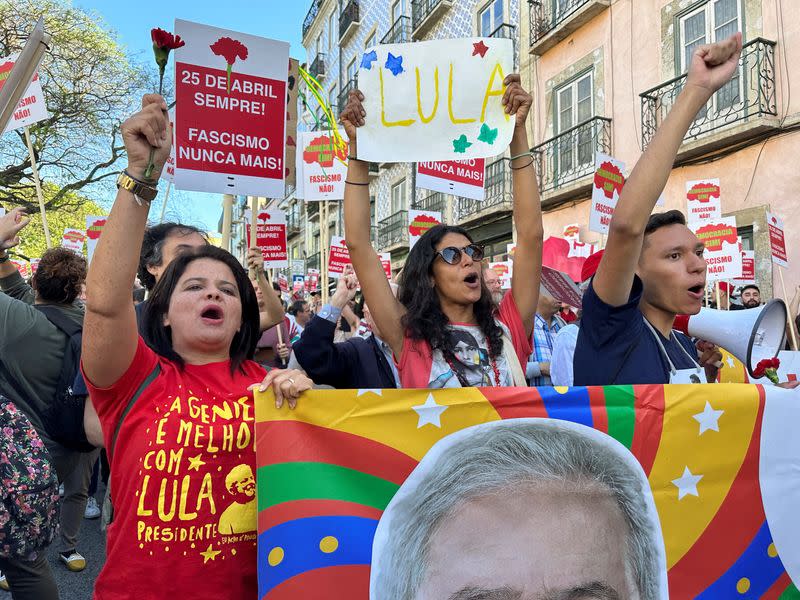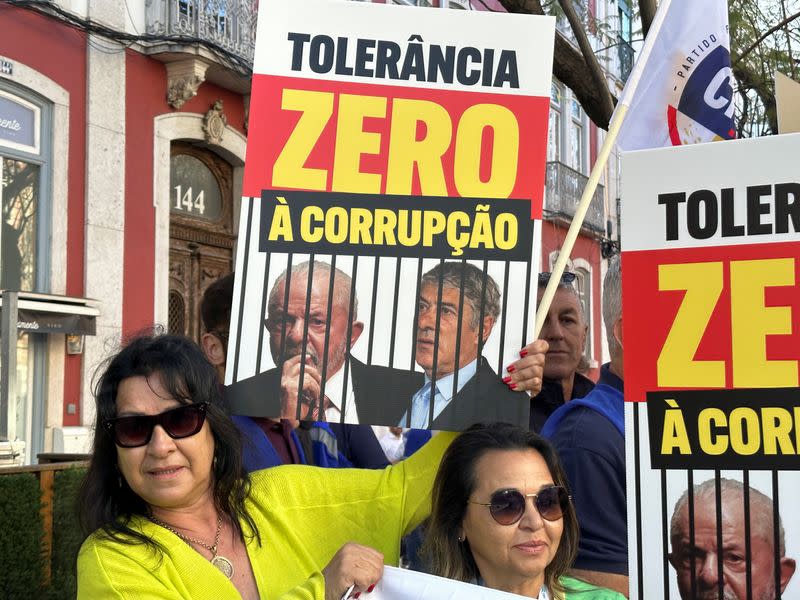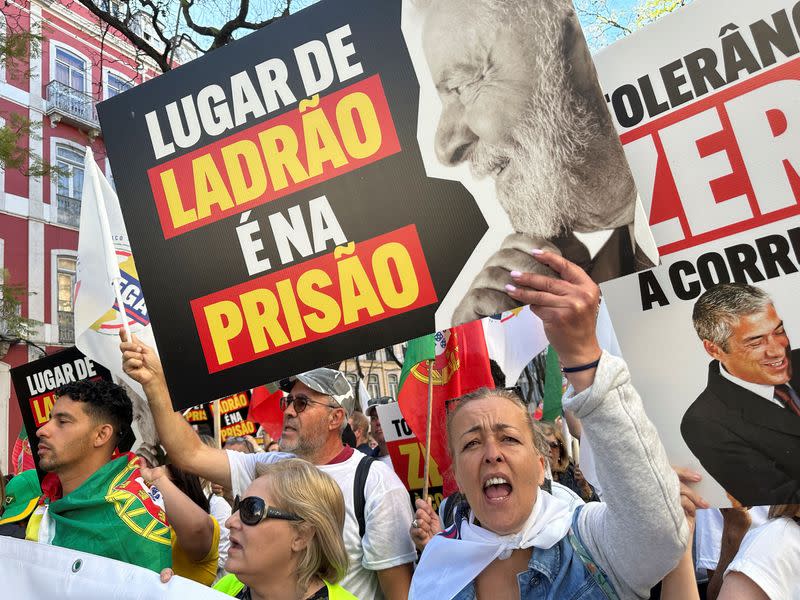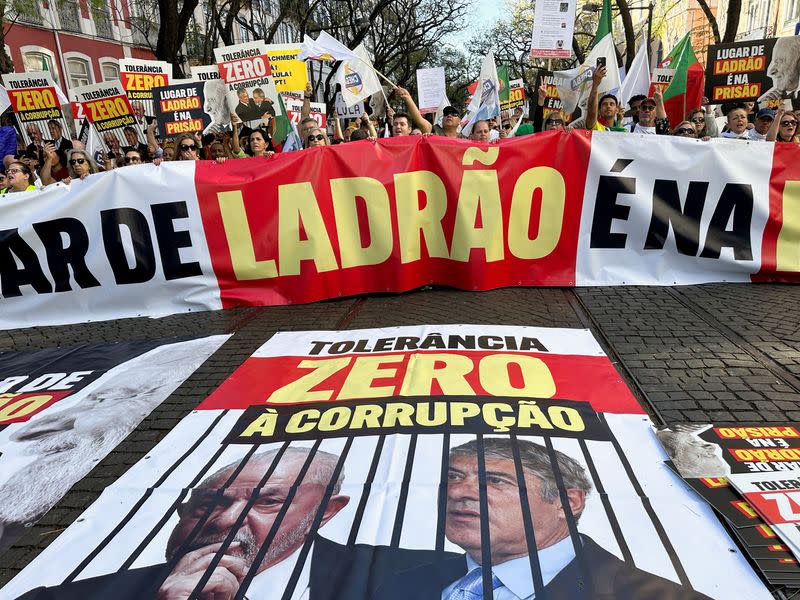Brazil's Lula triggers protests and passions in Portugal
- Oops!Something went wrong.Please try again later.
- Oops!Something went wrong.Please try again later.
- Oops!Something went wrong.Please try again later.
By Catarina Demony and Miguel Pereira
LISBON (Reuters) - Opponents of Brazil's President Luiz Inacio Lula da Silva condemned his visit on Tuesday to Portugal's parliament as hypocritical while a rival group of supporters hailed him as the saviour of their nation.
On his first visit to Europe since taking office as president, the leftist leader was attending Portugal's annual commemoration of the 1974 "Carnation" revolution which toppled dictator Antonio de Oliveira Salazar.
At a protest organised by far-right party Chega, people
shouted "Lula's place is in prison" in allusion to his 2018 jailing for bribery.
The conviction was overturned in 2021 and Lula then defeated right-wing President Jair Bolsonaro in an election last year.
"I see (his visit) as a scandal," said Tania Jimenez, a 61-year-old who moved to Portugal, home to around 300,000 Brazilians, in December. "He's an international thief."
As Lula spoke in parliament, Chega lawmakers thumped their desks and held signs saying: "Enough of corruption". Three of them brought Ukrainian flags after Lula angered many for suggesting both Ukraine and Russia were to blame for the war.
"Brazil's democracy has recently experienced moments of great threat... they tried to set our clock back by 50 years," Lula told parliament. "The news I bring you is that Brazilian democracy has demonstrated its solidity and resilience."
Dancing and holding carnations, Lula supporters erupted in jubilation when he arrived at parliament, shouting: "Fascism never again!".
"Today I cry when I hear the (Brazilian) national anthem, with emotion because I see that my Brazil is coming back," said 39-year-old Daniela Albuquerque, who moved to Portugal five years ago in search of a better life for her daughters.
(Reporting by Catarina Demony, Miguel Pereira and Rodrigo Antunes; Editing by Charlie Devereux and Andrew Cawthorne)




